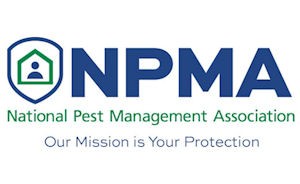 Updated May 31 to reflect new developments, as reported by the NPMA.
Updated May 31 to reflect new developments, as reported by the NPMA.
In its weekly ePestWorld newsletter to members, the National Pest Management Association (NPMA) reports on three industry updates regarding the Zika virus, which can be transmitted by Aedes aegypti mosquitoes, among other methods.
- U.S. Congressional movement: On May 24, the U.S. House of Representatives passed the Zika Vector Control Act (H.R. 897). H.R. 897 amends the Clean Water Act (CWA) to suspend the requirement to obtain National Pollutant Discharge Elimination System (NPDES) permits when applying pesticides directly to Waters of the U.S. through September of 2018. Last week, H.R. 897 failed to pass on suspension (which requires 2/3 majority) but this week passed during regular order 258-156. NPDES permits have been a priority issue for NPMA membership for several years, and the association notes that industry “engagement with members during Legislative Day and grassroots alerts were significant.” On May 26, the NPMA reports, the House voted to go to conference on Zika funding. In conference, lawmakers from the House and Senate will negotiate the final funding level. The Senate passed legislation for $1.1 billion, while the House approved a measure for $622 million. Congress recessed for Memorial Day while negotiations continued among key staff, including the addition of H.R. 897 into the final Zika funding package.
- Zika stakeholder outreach: In mid-May, the NPMA Policy Staff participated in a call with the Association of American Pesticide Control Officials (AAPCO), the Association of Structural Pest Control Regulatory Officials (ASPCRO), the National Association of State Departments of Agriculture (NASDA) and Responsible Industry for a Sound Environment (RISE) to discuss efforts on stakeholder collaboration. Representatives from state lead agencies provided a comprehensive overview on how they are working with health officials and mosquito control districts in crafting a Zika response strategy. Additionally, the NPMA spoke with the National Environmental Health Association (NEHA) to share information on efforts that NPMA and NEHA have been working on since the two organizations last met in March.
- Mosquito certification alert: Certification and training requirements for mosquito treatments vary from state to state. In many states, mosquito treatments are not included within the “structural” certification. In some instances, it may require certification in “aquatic” or “public health,” depending on the use patterns. The NPMA is strongly encouraging pest management professionals (PMPs) who intend to provide mosquito control services to ensure that they attain the proper certification in their state this summer. State pesticide regulatory officials have indicated that receiving certification could take 30 days or more. If you have questions concerning your current certification, contact the NPMA or your lead state pesticide regulator.
Leave A Comment